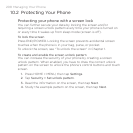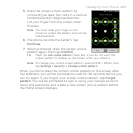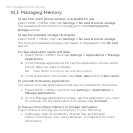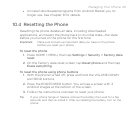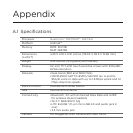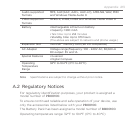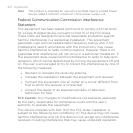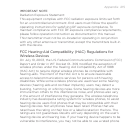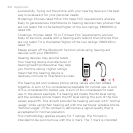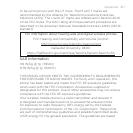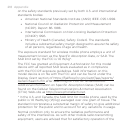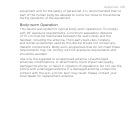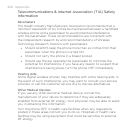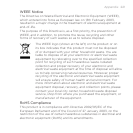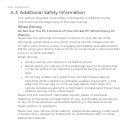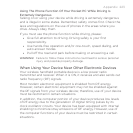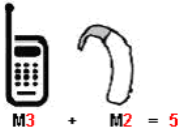
216 Appendix
successfully. Trying out the phone with your hearing device is the best
way to evaluate it for your personal needs.
M-Ratings: Phones rated M3 or M4 meet FCC requirements and are
likely to generate less interference to hearing devices than phones that
are not rated. M4 is the better/higher of the two ratings. PB00100 is
rated M3.
T-Ratings: Phones rated T3 or T4 meet FCC requirements and are
likely to be more usable with a hearing aid’s telecoil than phones that
are not rated. T4 is the better/higher of the two ratings. PB00100 is
rated T3.
Please power off the Bluetooth function while using hearing aid
devices with your PB00100.
Hearing devices may also be rated.
Your hearing device manufacturer or
hearing health professional may help
you find this rating. Higher ratings
mean that the hearing device is
relatively immune to interference noise.
The hearing aid and wireless phone rating values are then added
together. A sum of 5 is considered acceptable for normal use. A sum
of 6 is considered for better use. A sum of 8 is considered for best
use. In the above example, if a hearing aid meets the M2 level rating
and the wireless phone meets the M3 level rating, the sum of the two
values equal M5. This should provide the hearing aid user with “normal
usage” while using their hearing aid with the particular wireless phone.
“Normal usage” in this context is defined as a signal quality that is
acceptable for normal operation.
This methodology applies equally for T ratings. The M mark is
intended to be synonymous with the U mark. The T mark is intended



